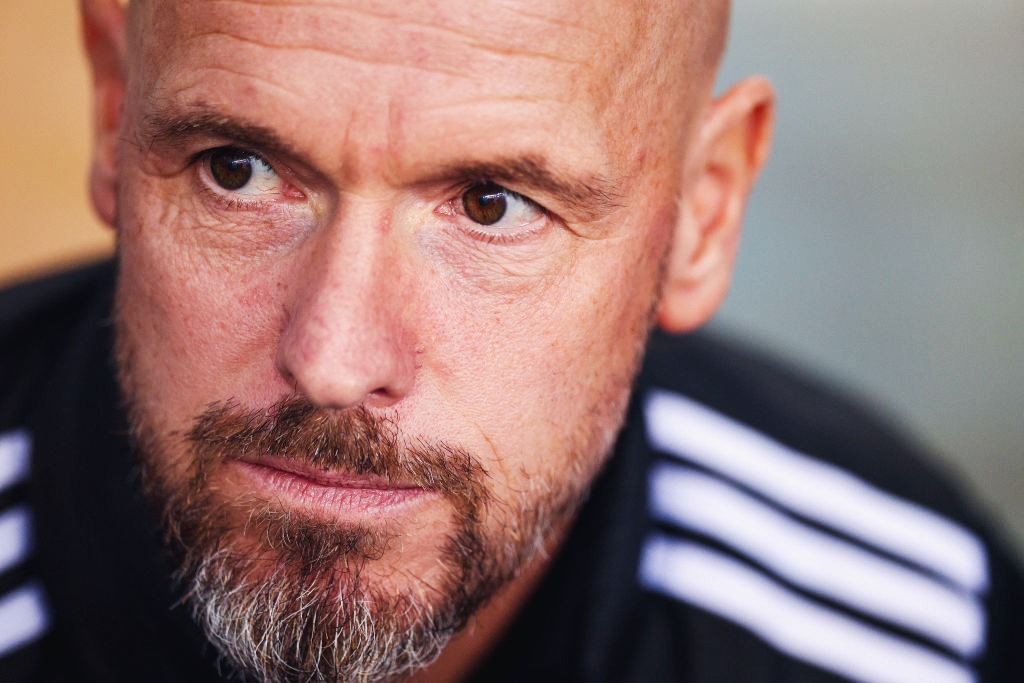‘I’ve proven in my career that I will always win,’ Erik ten Hag told the press last month. ‘In the last six years I have won eight trophies.’ The now-sacked Manchester United manager’s words were true but said without conviction. As loss followed loss, it was just one of the many excuses he trotted out to try and maintain his dignity and placate the fans. Both pundits and punters could see that ten Hag had grown tired and embittered after two years under the yoke of England’s biggest but most troubled football club. But how did the prospects of a talented manager collapse so quickly?
Ten Hag joined Manchester United just two years ago from Ajax in the Netherlands as one of Europe’s most-promising managers. There he had enjoyed near-total success: in his inaugural season he won the domestic league and cup and came within minutes of the club’s first Champions League final in 20 years. His young, unblooded team played with energy and aggression, famously demolishing a Real Madrid side who had won three successive Champions League trophies.
It was this energy and freshness that the directors at Manchester United hoped to acquire: he would build a new foundation for their stagnating club. Ten Hag was the club’s seventh manager since Sir Alex Ferguson left in 2013 – the seventh manager prior to Ferguson was Matt Busby and his ‘babes’ of the 1950s. Ten Hag started well, steering the team to a respectable third-place finish in the league, being runners up in the FA Cup and winning the League Cup. Despite some inconsistencies, it appeared that the club had found a manager who could, over time, settle into a position that Ferguson had seemed to curse on his departure.
Despite the positive appearances, though, ten Hag’s transformation of the team’s fortunes was reliant on a series of clashes behind closed doors. His combative style meant he expected complete obedience from the players, an easy feat with a young Ajax squad, but not with a United team that included club legend Cristiano Ronaldo and star midfielder Paul Pogba – neither of whom were known for shying away dressing room scraps. Both were quickly released from their contracts at the start of ten Hag’s tenure. To fill their place, the manager turned to his former Ajax starlets, recruiting several for eye-watering sums such as the tricky Brazilian winger Antony (for £86 million) and quick defender Lisandro Martinez (£50 million). By forsaking some of the old guard and relying on new recruits with large price tags, the new players had to be immediate successes. But they struggled to settle. Antony, for instance, has scored just five times in 50 games. In total, ten Hag spent £600 million in two and a half years, desperately purchasing player after player as he sought the missing piece to his team. At the end of ten Hag’s second season, United finished eighth – their lowest since Ferguson left.
With no league improvement in sight, ten Hag cornered himself into a trophy-winning mindset in a club that needed general rejuvenation. A domestic trophy could provide a stay of execution for a struggling manager as it did in May when ten Hag’s side scraped through to win the FA cup. Ironically it was ten Hag’s predecessor Ole Gunnar Solskjaer who pointed this out at a time when he was struggling to keep the job himself: ‘Any cup competition can give you a trophy but sometimes it’s more of an ego thing… we need to see progress.’
For the past ten years there has been no progress at Manchester United; no manager has consistently taken them near the top of the league, and once-mid-table clubs such as Aston Villa and Brighton are now expected to routinely beat them. Whoever the manager, after every home defeat, the cameras pan to the now-retired Ferguson still sitting in the stands looking more repulsed by the worsening performances. Ten Hag is just the latest victim of the Manchester United trap.








Comments